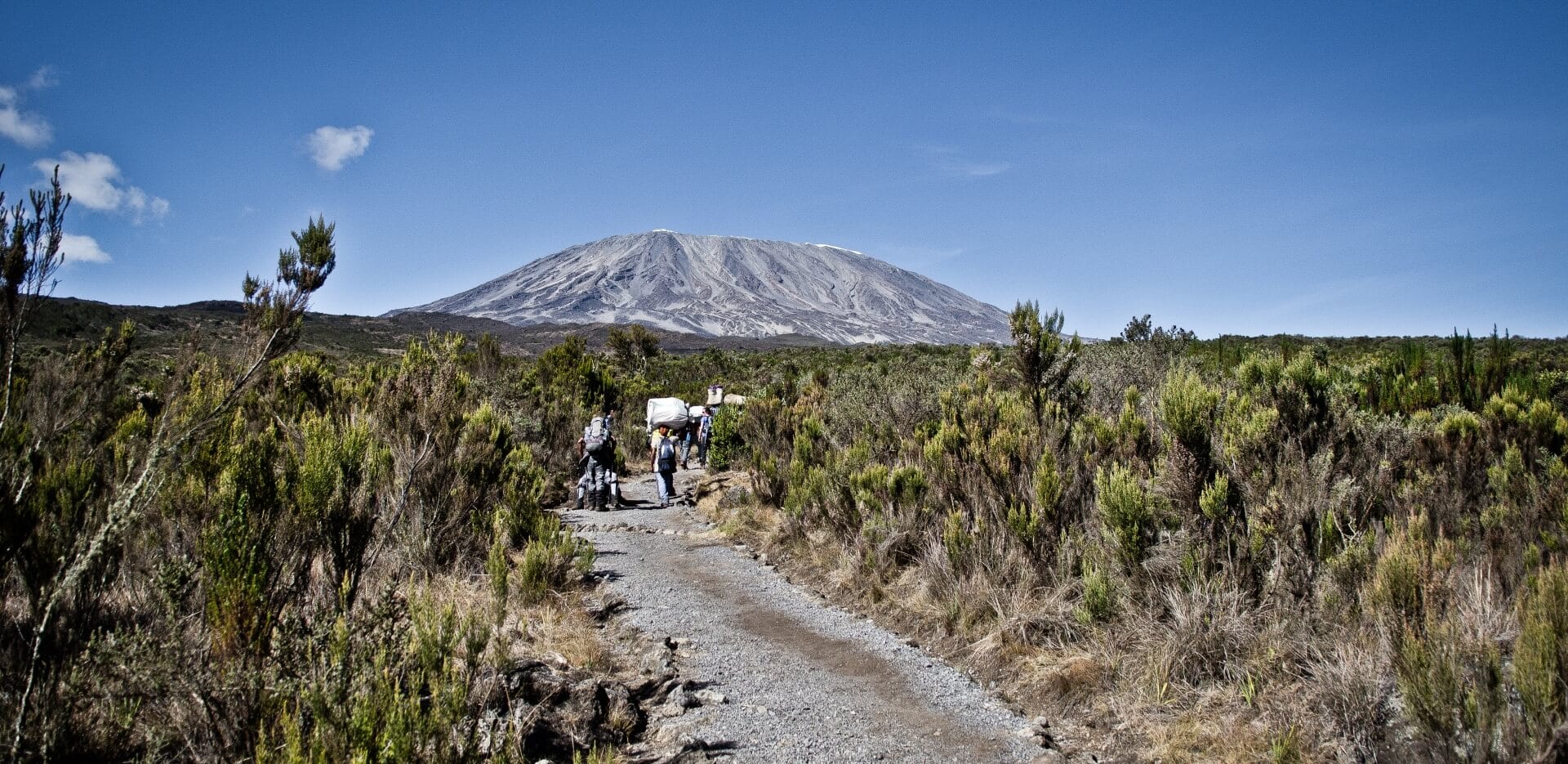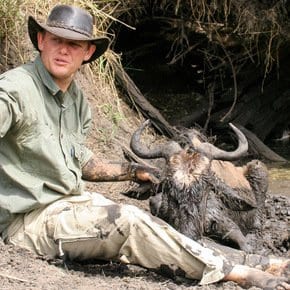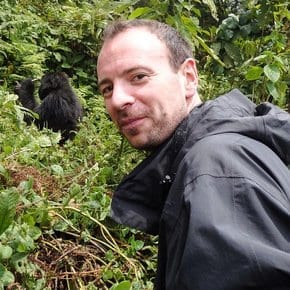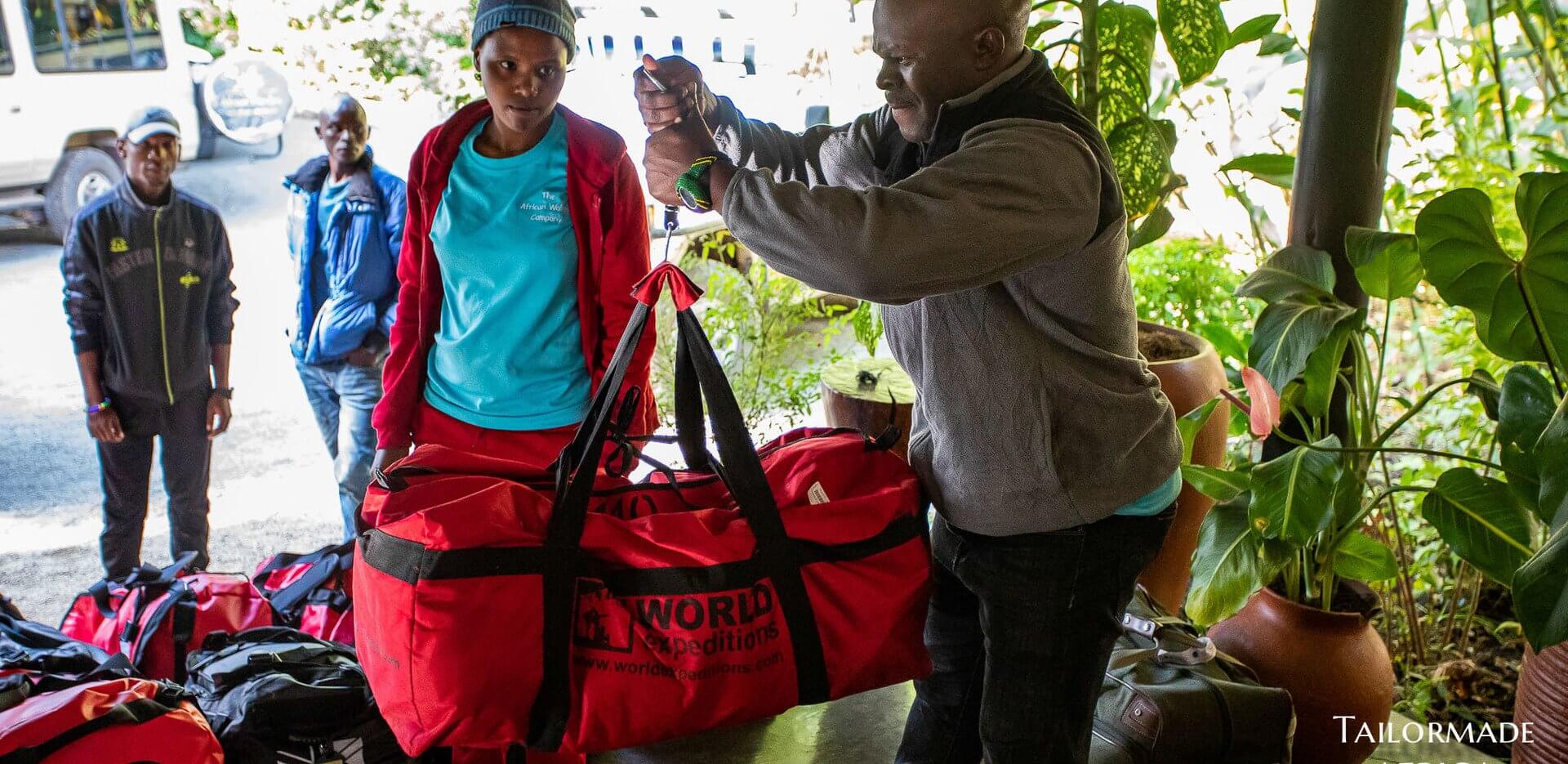
The Best Route to Climb Mount Kilimanjaro
February 24, 2022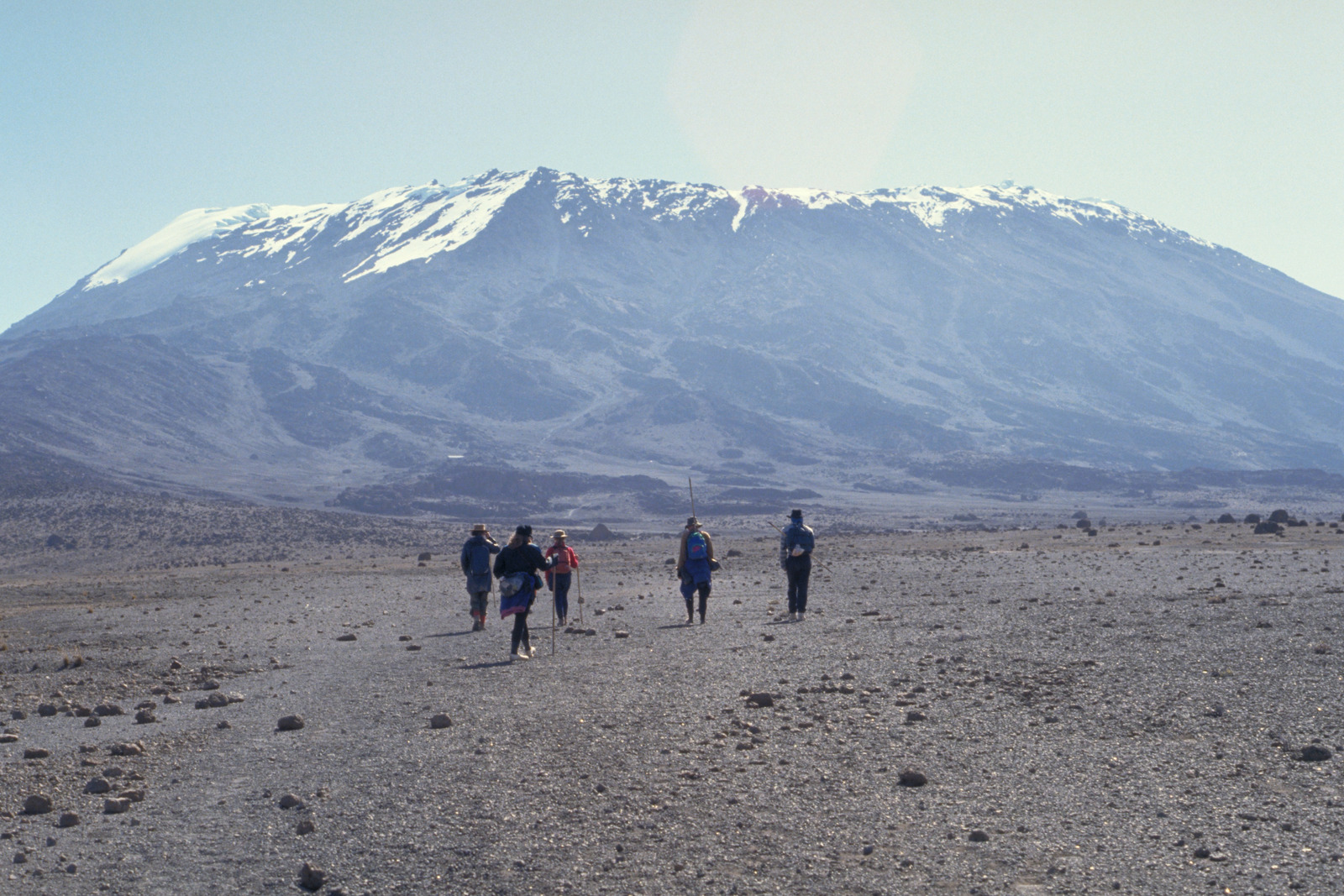
Why Climbing Mount Kilimanjaro Will Make For The Perfect Next Trip
May 19, 2023
The Best Route to Climb Mount Kilimanjaro
February 24, 2022
Why Climbing Mount Kilimanjaro Will Make For The Perfect Next Trip
May 19, 2023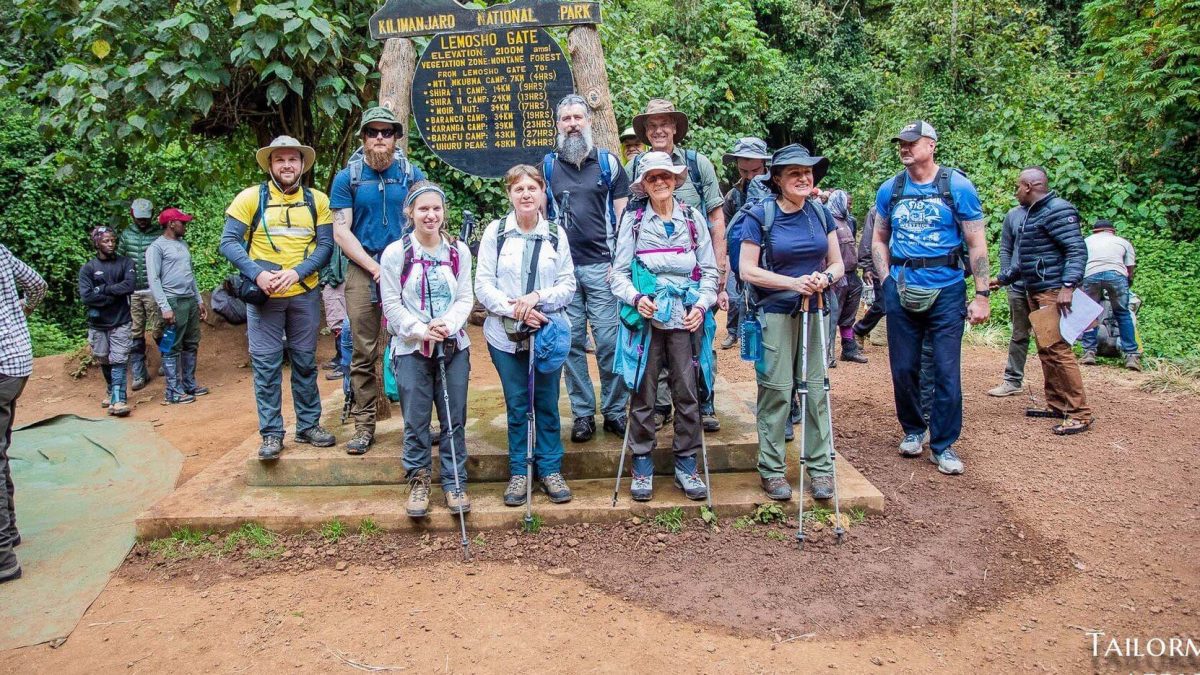
The African Walking Company is the only operator Tailormade Africa recommends to our clients when planning a trek up Mount Kilimanjaro. Their success and safety rate is impeccable.
Choosing the right mountain operator is the most important decision that you will make in your quest for the summit. Running a decent climb operation on the highest mountain in Africa is a highly specialist business. In recognition of this, we decided that we needed to adopt our very stringent ethos of finding the most professional operator with the best guides for Kilimanjaro treks. The African Walking Company shone above the rest!
Although, treks with The African Walking Company may be 20% to 40% more expensive than the majority of the more budget-oriented companies, they certainly represent the best value on the mountain. They have long held and stuck to their main principles on specifications, customer care and staff welfare and have managed to differentiate their treks from those of other operators. They have been proved right at almost every turn. They have a far higher summit success ratio, an exemplary safety record and an extremely well-deserved reputation for elevated levels of mountain service.
The African Walking Company does not sell directly to customers but instead concentrates on what it does best ... getting people up and down the mountain. The treks are offered through a small number of specialist travel companies such as ourselves, which have been hand-picked for their ability to transmit to guests the ethos and quality of the treks that the company operates. The African Walking Company is without doubt one of our very best suppliers, having attracted consistently glowing feedback from customers for many years. They are extremely nice people, whose hearts are most definitely in the right place and we are very proud to be one of their leading partners.
The African Walking Company FAQs
The African Walking Company has been a leading pioneer in staff welfare and is a full member of KPAP, an organization that supports the fair and ethical treatment of Kilimanjaro porters.
The mistreatment of porters can be a troubling challenge in the climbing industry. The main concern is the wages paid to the porters. On a budget trek, a porter will probably get US$5 or US$10 from the operator and be working mainly for tips, which will typically be between US$25 to US$40 per porter. The porters are forced to beg and hassle for their tips. They simply cannot afford to go off the mountain and back to their families with no money. This leads to some pretty distasteful scenes towards the end of some treks. Obviously, the possibility of theft is also much higher under these circumstances as the trekkers are carrying more cash and especially since these porters are generally only casual staff picked up at the gate at the start of the trek. The African Walking Company pays their porters above the minimum amount recommended by KPAP and have a structured, sensible guideline for tipping which creates a much more dignified and less stressful livelihood for the porters.
The African Walking Company voluntarily participate with KPAP’s monitoring activities and allows them to evaluate the treatment of their porters on all of their climbs. By climbing with The African Walking Company you can be assured that your porters are well taken care of.
KPAP also helps to improve the working conditions of porters by:
- Lending donated clothing at no charge to the mountain crew for use while climbing
- Educating the public on porter working conditions and climbing responsibly
- Providing industry guidelines for proper porter treatment
- Offering educational classes to porters
Please consider that in making your choice of mountain operator, in a way, you are significantly responsible for the welfare of the staff on your trek. By trekking with The African Walking Company and Tailormade Africa you can travel safely in the knowledge that you are positively supporting local people rather than being embroiled in this kind of abuse.
Diet on the mountain is carefully controlled and monitored. A high liquid and carbohydrate content is essential, with fresh ingredients wherever possible. Meals are carefully prepared by our teams to be tasty, have a high energy content and be easy to digest at altitude. Special diets such as gluten-free, vegetarian and lactose intolerant are possible.
- Bed Tea: Hot beverage of your choice, served in your tent
- Breakfast: Porridge, Eggs, sausage, bacon and tomato
- Seasonal fresh fruit: Mango, banana, water melon, toast with margarine, jam, peanut butter and honey, Tea, coffee, drinking chocolate and soup
- Trail snacks: Biscuits , bananas and chocolate
- Packed lunch: Sandwiches with cheese and jam, fresh fruit, boiled egg, cake and soup
- Camp lunch: Chicken or vegetable soup, bread, pancakes, cheese, tinned fish, jam, peanut butter. A Salad of tomatoes, cucumber, carrots, onion. Tea, coffee, drinking chocolate and soup
- Afternoon tea: Peanuts, popcorn, cake, biscuits, tea, coffee, drinking chocolate and soup
- Dinner: Chicken or vegetable soup , chicken, beef or fish, roasted or prepared in a sauce. Fresh vegetables including carrots, beans, peas, peppers, tomatoes and potatoes, together with pasta, rice. Fruit salad, pancakes, biscuits, tea, coffee and drinking chocolate.
Boiled water is offered each evening for filling water bottles and is readily available at other mealtimes too. Chemically purifying is not something we believe to be strictly necessary. The water up on the mountain is not full of amoeba as it is in the Himalaya and boiling is sufficient. However, Some clients prefer to chemically purify the boiled water to be doubly sure, in which case they need to use chlorine rather than iodine but should be aware that this too can cause stomach upsets. Good quality water filters are expensive, but are excellent when used properly and are preferable to chemical purification if the trekker considers that a secondary level of protection is necessary.
Trekkers are accompanied by a mountain team made up of a number of expert local staff. Even with just 2 trekkers, there is a huge amount of equipment that needs to be carried by porters. You also need to have a head guide, assistant guide and cook, adding up to around 13 staff in total. If you have 15 trekkers in your group, you will be accompanied by around 45 staff. The African Walking Company are pioneers in staff welfare on the mountain and were the first company to offer only permanent employment, no casual labour.Their guides are amongst the finest on the mountain. The level of training that these guys go through is impressive, their experience levels amazing, their social and team management skills remarkable. They have lots of guides and teams who have been to the summit of Kilimanjaro 200-300 times. Even the least experienced head guide will most likely have summited dozens of times as an assistant guide. So you are in great hands.
EQUIPMENTEvery piece of equipment that is taken on a trek needs to be of sufficient quality. Over the years The African Walking Company have tried and tested many different designs and brands and fine-tuned towards those items which have proved to deliver reliably on the mountain.Maintenance is also a key issue, and have been extremely disciplined on a regimen of cleaning, repair and storage. Their equipment stores in Arusha are run with military precision, so that when they are kitting out each trek we all know for certain that all the right gear is allocated and in a serviceable condition.The consequences of packing or equipment failure once out on the mountain can be extremely serious.
SLEEPING TENTSOver the years the African Walking Company have experimented with many different types of tents. It is hard to find tents which are strong enough to survive repeated treks up the mountain. Since 2008 they have been using Vango Hurricane 300 mountain tents. Although they are designed to sleep three, they only allow a maximum of two clients in each tent. Space inside is therefore reasonable and easily accommodating two large men. These tents have a door at either end making access easy and as both doors have a porch area that is inside the flysheet there is ample room for storing your luggage. The mountain teams maintain the tents and all other equipment extremely carefully. After each trip they get washed and checked and any repair work is done immediately. At the end of each season, there is a total equipment check, where all gear is evaluated, not only for minor repairs but for the general condition and whatever action is needed.
COMMUNAL TENTSA trek on Kilimanjaro inherently includes spending a lot of time around camp, up to ten waking hours a day, so it really is preferable to have a communal tent, in order to provide an area for relaxation and meals. Many trekkers think of a mess tent as a luxury before they hit the hill, but one of the most common comments that we get from them after the trek is how much it was appreciated. We know that a communal tent has a significant effect on summit success rates, only the hardiest trekkers can get by without one. The African Walking Company has a ridged style mess tents with doors at each end, plus tables and simple chairs, seating four trekkers per table.
TOILET TENTSMost of the official camping locations on the mountain have rudimentary toilet huts. These are famously unappealing and poorly maintained. The African Walking Company take a private toilet facility on all of their treks.
The African Walking Company place staff welfare at the core of their business which is one of the many reasons we are proud to work with them. Their mountain teams and staff are critically important to them and they pay a great deal of attention to finding the right staff and retaining them. All of their staff work exclusively for them, and they run training courses to help them develop and regularly promote from within. Some of their current head guides started as porters and have been trained and worked their way up to the highest positions.
HEAD GUIDESThe head guides each hold licences from the Kilimanjaro National Park authority to lead treks and have their own teams of assistant guides and camp staff in order to ensure a good level of service on the mountain. It is these head guides who carry the ultimate authority during a trek and any decision he makes is final.All their guides know Kilimanjaro very well, climbing it around 20 times each year. The guides speak English, are welcoming, warm and helpful towards their clients. Their level of formal education varies widely, but all have the capability to manage the complex logistics of porters, provisions and routines.
PORTERSThe people who really make the trips happen behind the scenes are the porters. But despite their importance to a trek, the manner in which many mountain operators deal with their porters is nothing short of scandalous. The abuse of porters is a major issue on Kilimanjaro and one which every trekker should familiarise themselves with before booking. Whilst it may be true that Africa is a much tougher environment than most visitors are used to and people are more accustomed to greater levels of deprivation and adversity, that does not make it right for trekkers to support this abuse by trekking with offending companies.
Whether or not the porters eat well is another major issue as staff food also represents a considerable weight element. A large trek can have over 40 staff and cutting rations can lead to major cost savings, something that we clearly would never condone.Another key issue here is how much the porters are loaded. We know of several major mountain operators which regularly load their porters to 40kg, whereas we set 25kg as the upper limit. You have to see some of these porters on the mountain, they are loaded like pack mules. Try lifting 40kg off the floor, then imagine trying to walk all the way up and down the mountain with it on your heads. It is no wonder that the working life of a porter is often not more than a few years.

